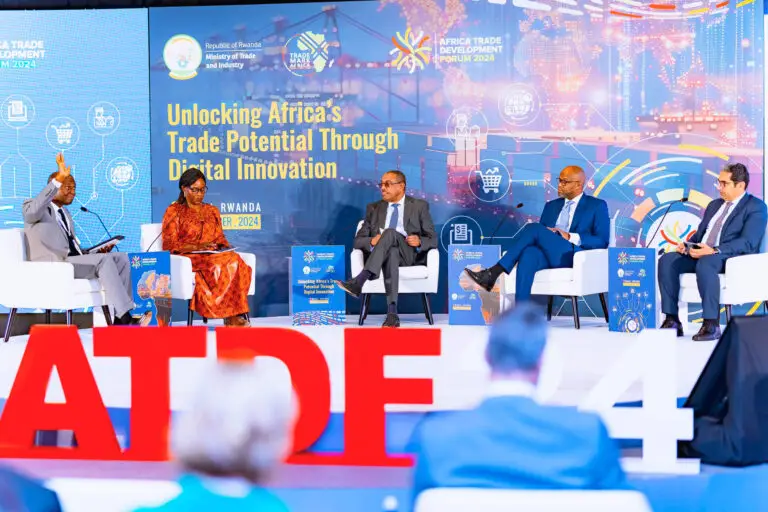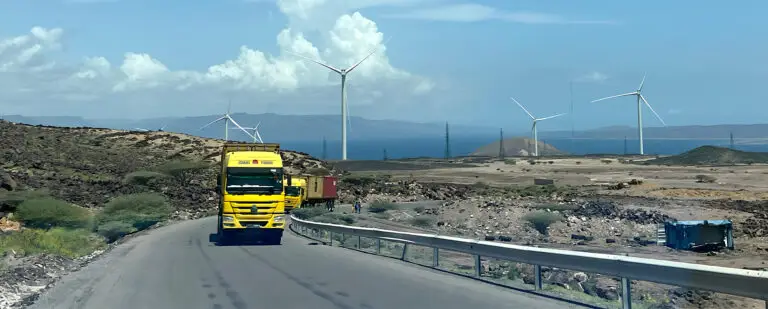Digital Trade Systems
Modernising customs and cross-border trade systems so that businesses spend less time on paperwork and more time innovating and growing.
Digital Economies
Digital Trade Corridors
Digital Trade Policy
Digital Trade Information
Border and documentary compliance are critical to the efficiency of trade-related supply chains. Perhaps the greatest success of the last two strategic periods (2010-2023) has been the growing application of technological advancements in the digital sector. By investing in digital trade infrastructure and processes, countries can reduce the inconveniences of manual interactions and ensure continuity of trade flows. In 2017, it took an average of 251 hours (over 10 days) to complete paperwork for importing goods into sub-Saharan Africa, compared to just 9 hours in OECD countries (World Bank, Doing Business Report 2017). Such inefficiency is largely due to manual, paper-based processes, high transaction costs, multiple suppliers/agencies along the supply chain, minimal transparency, diminished trust and predictability, and approval delays. A partnership-driven approach with the private and public sector has propelled TMA’s digital trade agenda, which, up to December 2024, has facilitated over 100 digital portals. These include integrated customs systems, electronic cargo tracking systems, single window trade
information portals, national single windows, and other trading systems targeting specific high productivity value chains such as tea and coffee, thus improving resilience and efficiency. Electronic application in the movement of goods across borders saves time, reduces costs for traders and improves revenue collection. TMA is also harnessing innovations in Artificial Intelligence and Open Ledger technology, to provide a secure and transparent platform for recording and tracking trade-related transactions.
Digitisation
Work with Governments and agencies to digitise trade processes including through single windows, customs management systems, and trade portals.
ICT Solutions
Deploy ICT solutions for enhancing market information access and improving financial inclusion.
Digital Trade
Increase the ability of poor women and youth to access digital trade processes and systems.
Buyers & Sellers
Develop and enhance eCommerce platforms to link buyers with sellers; and digital payment systems to enable small businesses to trade across borders.
Interoperability
Enhance the interoperability of customs and other systems between countries, to enhance Integrated Corridor and Border Management.
2010-2024
These have resulted in a 32% reduced time for traders to process trade documents and activities, from an average of 206 hours in 2018 to 104 hours in 2023 and the cost has gone down by 50%, from an average of $29 in 2018 to $14 in 2023. (Source: External Evaluation of ICT4T, January 2024, conducted by EDI Global.)
Cargo clearance time reduced at the Inland Container Depot in Nairobi for tagged containers from 12 days to 4 days; cost paid by cargo owners for extra days from $52m to an average of $3m or a 94% reduction.
Cargo clearance time was reduced at the Inland Container Depot in Nairobi for tagged containers from 12 days to 4 days. The cost paid by cargo owners for extra days has gone down from $52 million to an average of $3 million, or a 94% reduction.
iCMS has reduced clearance time for air freight from an average of 2 days to 2-3 hours as of December 2021. (Source: iCMS project report)
-
Trade & Investment Environment
-
Resilient Trade
-
Quality & Value of Traded Goods
-
Physical Connectivity: Ports, Borders, Roads
-
Greening Trade






